CONTENT
Early developments of the firearms
- Early cannons
- The firing pole or hand gonne
- Evaluation of an hand gonne
- The arquebus
- The match lock for arquebus
- Match lock of the last design with integral pan
- Match lock mechanism explained
The wheel-lock
- Early wheel device by Leonard de Vinci
- Leonard de Vinci wheel-lock explained
- Principle of functioning of a classical wheel-lock
- Trigger mechanism with sear safety
- Wheel-lock mechanism when released
- Wheel rotated against the mainspring
- Wheel-lock ready for firing
- Production of the wheel-lock firearms
- Dual match and wheel-lock system
- Technical evolution of the wheel-lock mechanism
- All-steel wheel-lock pistol
- Legend of the parts
- The most advanced models
The snaphance lock
- Snaphance lock particulars
- Functioning of the snaphance lock
- Horizontal rotation of the sear
- The buffer piece
- Manual pan cover
- Different designs of snaphance locks
- Index of the parts
- Sear made of two articulated parts
- Other types of snaphance designs
The Miquelet lock
- The Spanish Miquelet lock
- The Italian Miquelet lock
- General characteristics of the Miquelet lock
- Removable dovetailed steel plate
- Algerian (North Africa) Miquelet lock
- Different positions of the steel spring
- Index of the parts
Functioning of the Miquelet lock
- Miquelet lock of the Spanish type
- Miquelet lock of the Italian type
- Miquelet lock of the third type
- Internal functioning of the Miquelet lock
- The sear mechanism explained
- Safety and full cock position
The French flintlock
- Fowling piece by Marin le Bourgeoys
- Marin le Bourgeoys internal lock
- Air gun conceived by Marin le Bourgeoys
- French flintlock mechanism at the end of the 17th century
- Early tumbler bridles of the second half of the 17th century
- The French flintlock of the early 17th century
- Lock plate shape of the early 17th century
- Internal mechanism of an early 17th century lock
- Spring of the steel located on the internal face of the lock
- The French flintlock of the second half of the 17th century
- Typical examples of the second half of the 17th century
- LAZARO LAZARINO COMINAZZO
The flintlock pistols of the second half of the 17th century
- Typical features
- The general shape of the butt
- The length and structure of the barrel
- The trigger and side-plate worked artistically
- The shape of the cock and its tightening screw
- The shape of the front foot's toe of the steel
- Extract from a pattern-book by C. Jacquinet
Evaluation of a pistol before purchase
French flintlocks of the first half of the 18th century
- Match lock of the last generation
- Flintlock mechanism without tumbler bridle
- French regulation lock of the model 1717
- French regulation lock of the model 1728
- Model 1728 lock parts list
- French regulation lock of the model 1746
- French regulation lock of the model 1754
French flintlocks of the second half of the 18th century
- French regulation lock of the models 1763 - 66
- The "espalet" cock
- French regulation lock of the models 1770 - 1773
- Phases of construction of the 1770 lock plate
- French regulation lock of the model 1774
- French regulation lock of the model 1777
- French regulation lock of the model Year IX
- French regulation lock of the model 1816
- French regulation lock of the model 1822
- Kings of France during the flintlock era
Analysis of a complex lock
- Comparative chart of the French flintlocks
- Mandatory inspection of the lock before purchase
The flintlock tinder box
- Early wheel-lock lighter or tinder box
- Typical flintlock tinder box of late 17th or early 18th
- Flintlock tinder box based on a boxlock mechanism
- Tinder box based on an Italian flintlock pistol
- Principle of functioning
- How to prepare tinder fungus
- Analysis of a typical flintlock tinder box
- Functioning of the flintlock tinder box
The black powder testers
- Early powder testers using match ignition
- Early powder testers technical features
- Powder tester based on a classical flintlock pistol
- Powder tester based on a boxlock pistol
Ebook screen prints

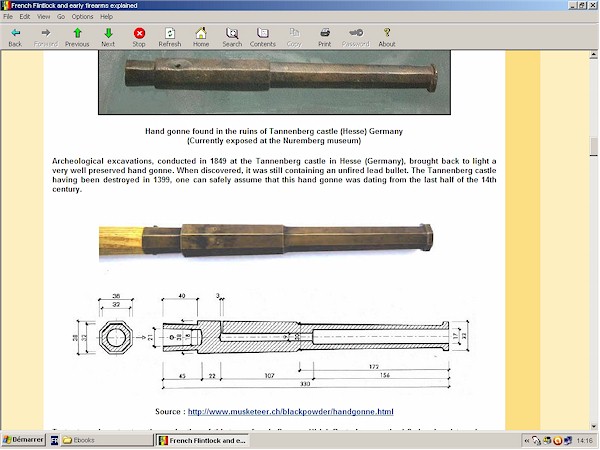
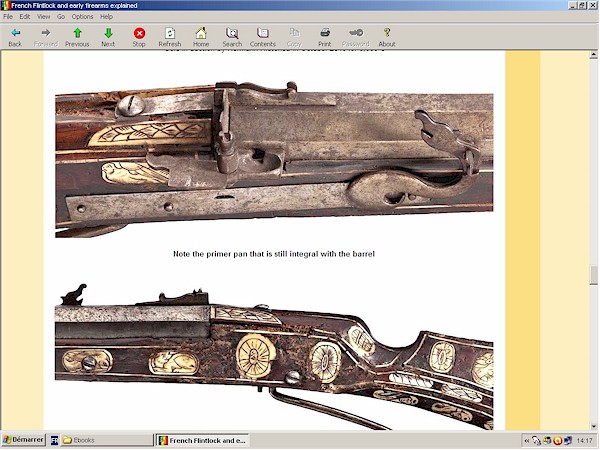
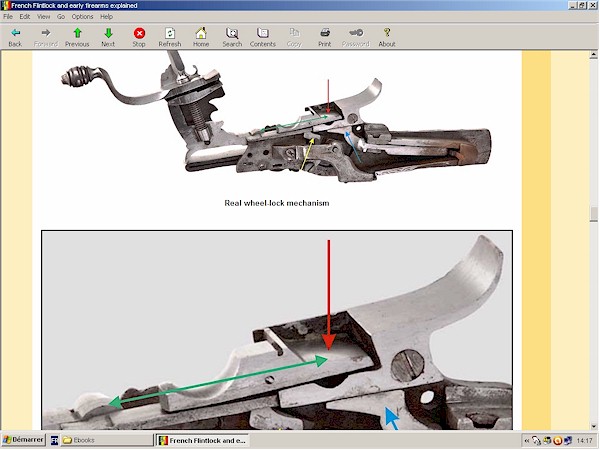
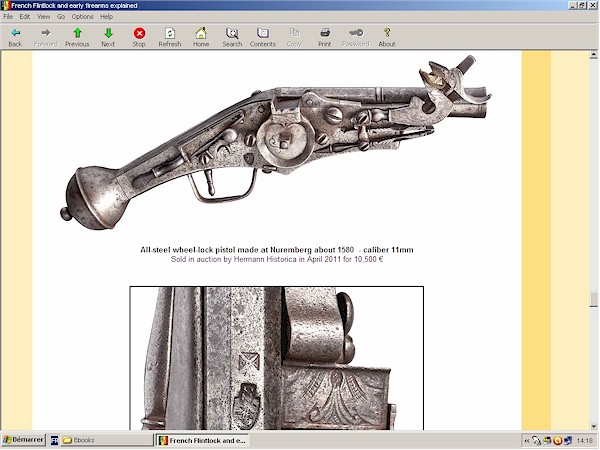
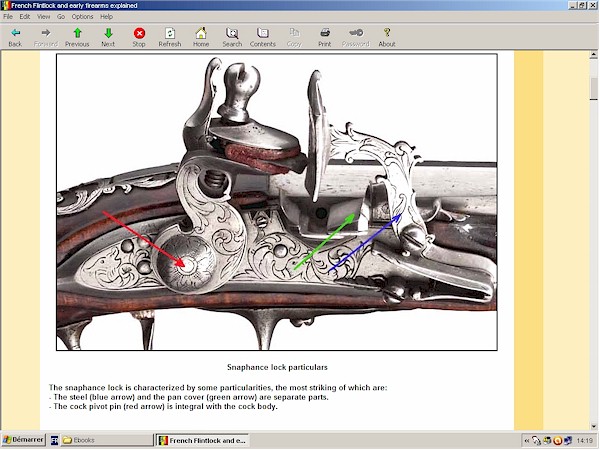
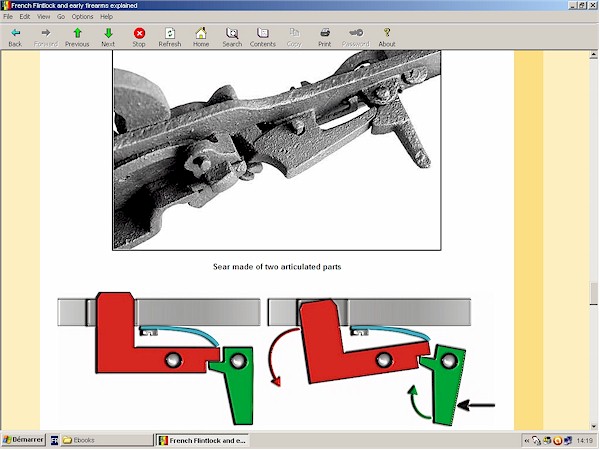
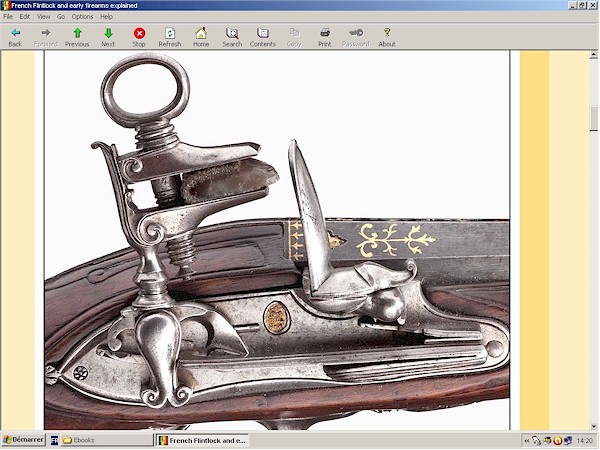
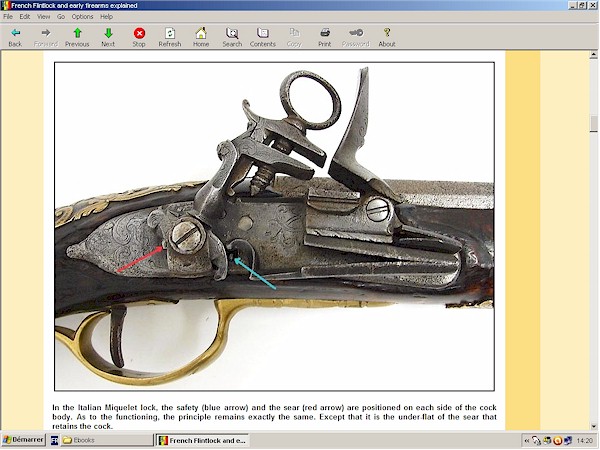
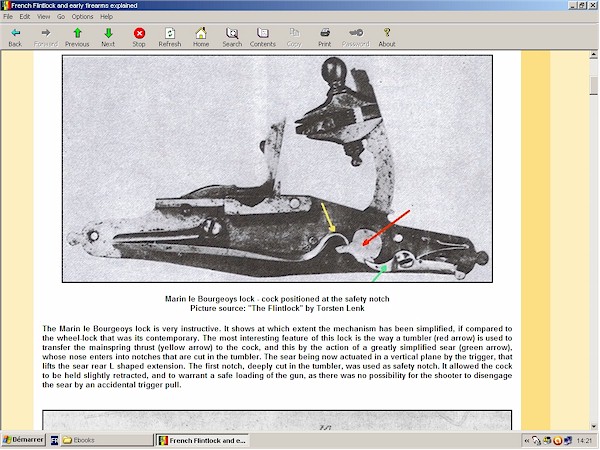
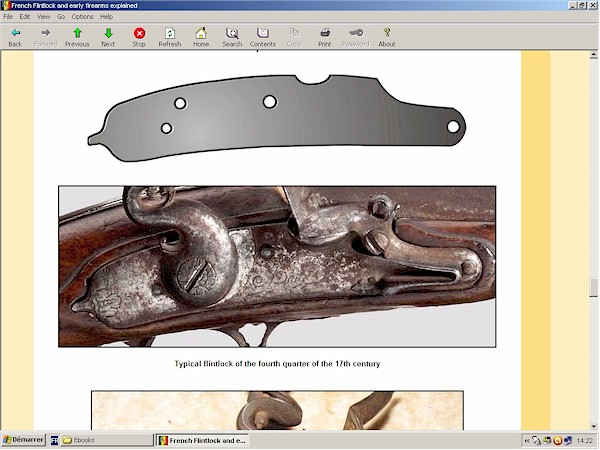
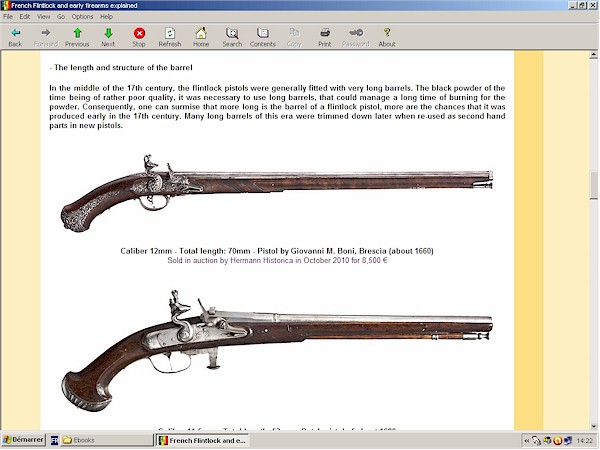
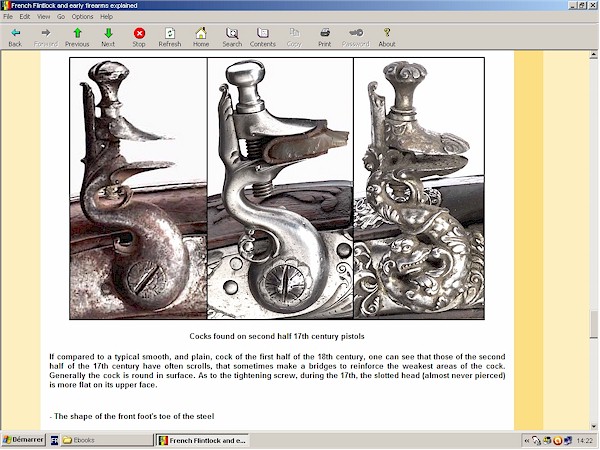
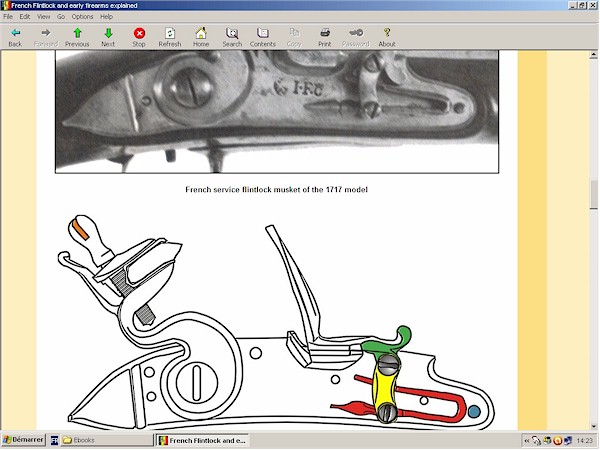
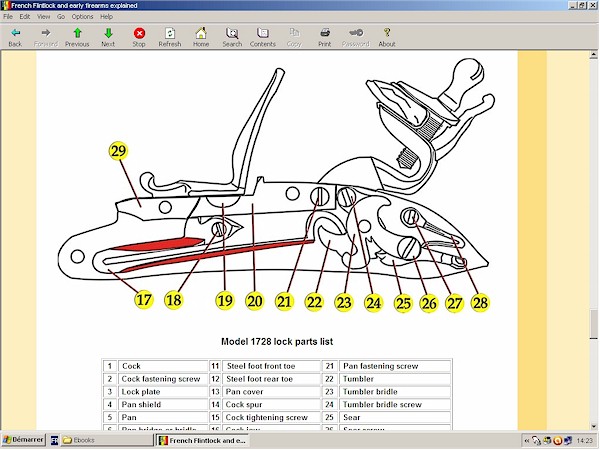
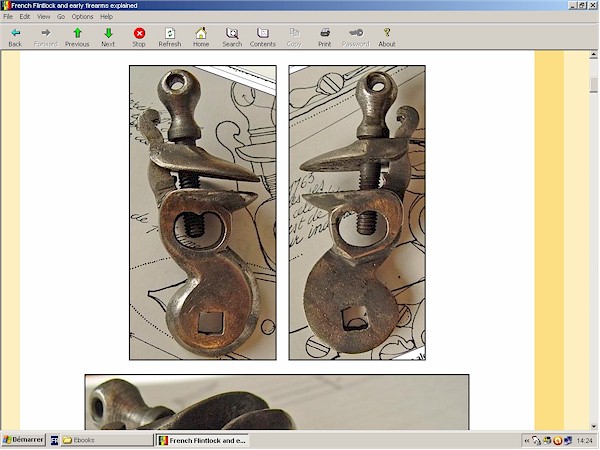
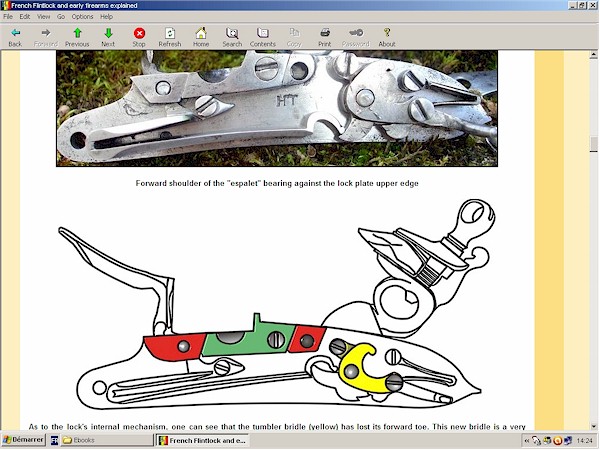
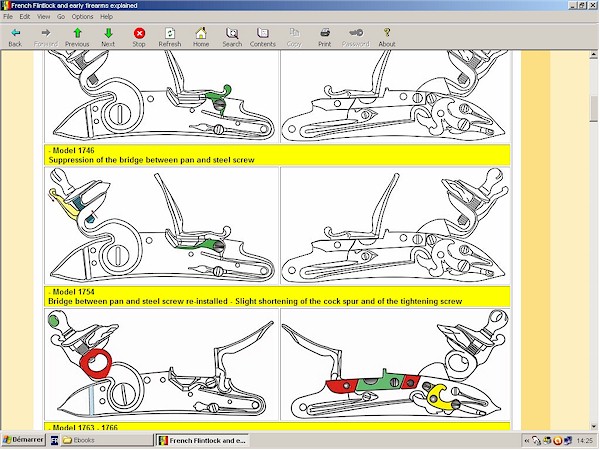
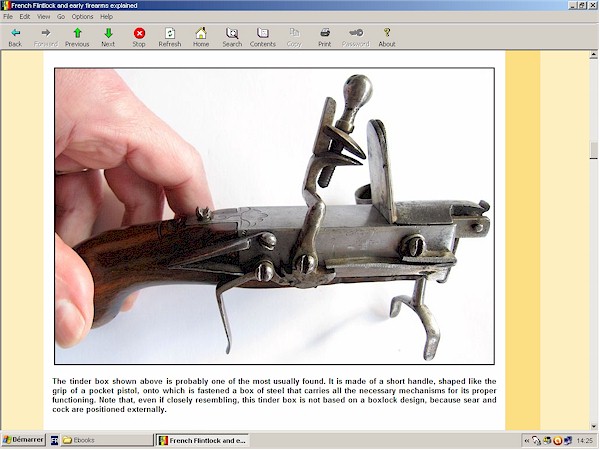
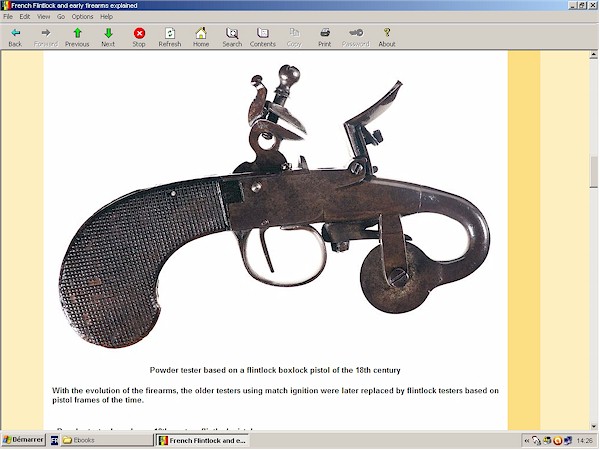
This ebook is downloadable here : http://www.hlebooks.com/ebook/silexe1.htm